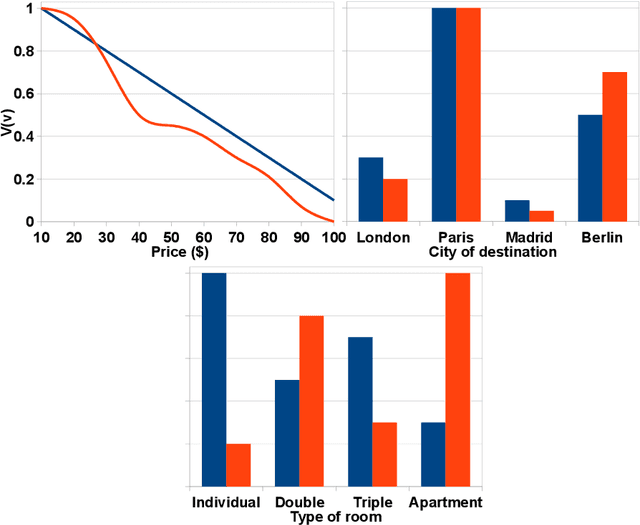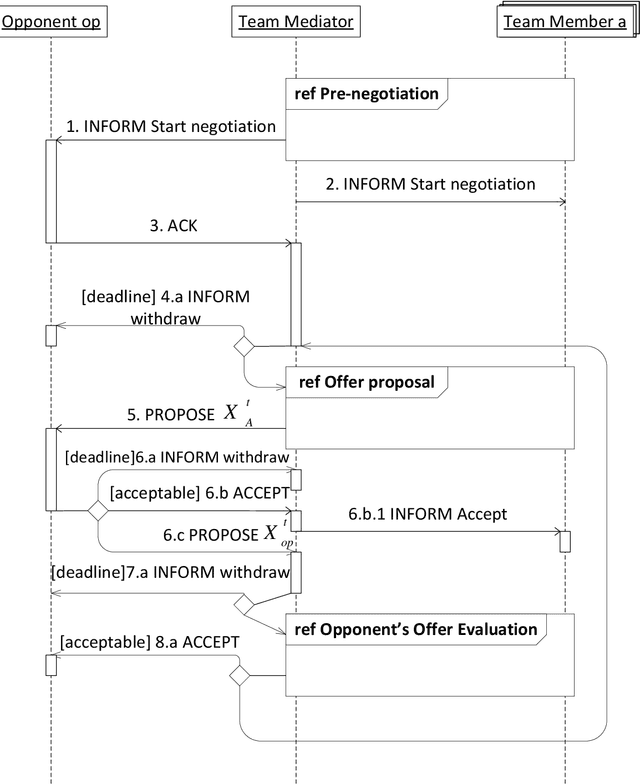Unanimously acceptable agreements for negotiation teams in unpredictable domains
Paper and Code
Apr 16, 2016



A negotiation team is a set of agents with common and possibly also conflicting preferences that forms one of the parties of a negotiation. A negotiation team is involved in two decision making processes simultaneously, a negotiation with the opponents, and an intra-team process to decide on the moves to make in the negotiation. This article focuses on negotiation team decision making for circumstances that require unanimity of team decisions. Existing agent-based approaches only guarantee unanimity in teams negotiating in domains exclusively composed of predictable and compatible issues. This article presents a model for negotiation teams that guarantees unanimous team decisions in domains consisting of predictable and compatible, and also unpredictable issues. Moreover, the article explores the influence of using opponent, and team member models in the proposing strategies that team members use. Experimental results show that the team benefits if team members employ Bayesian learning to model their teammates' preferences.
 Add to Chrome
Add to Chrome Add to Firefox
Add to Firefox Add to Edge
Add to Edge